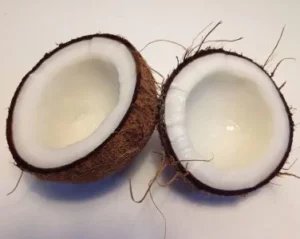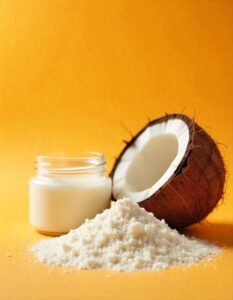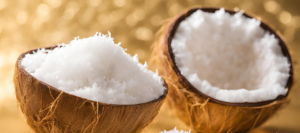Exploring India’s Coconut Farms: Export Insights
By grofarm ug
India, known for its rich agricultural heritage, is one of the leading producers and exporters of coconuts and coconut byproducts in the world. The lush green landscapes of the country are dotted with sprawling coconut farms that contribute significantly to the country’s economy. In this blog post, we will take you on a virtual journey into India’s coconut farms, offering valuable insights into the export industry and the wide range of coconut byproducts it encompasses.
Understanding India’s Mature Coconut Export Industry
India is the second-largest producer of coconuts globally, accounting for approximately 21% of the total coconut production in the world. A significant portion of these coconuts are exported to various countries around the globe, making India a major player in the global coconut trade.
Did you know? India exports around 10% of its total coconut production!
The mature coconut is the primary product exported, and it is in high demand worldwide due to its versatility and numerous applications. These coconuts are mainly used for their meat, water, and oil. Rich in nutrients, the meat can be used in various culinary preparations, while the water and oil have their own unique health benefits and applications in the food, beauty, and healthcare industries.
The Process of Exporting Coconuts from India
Exporting coconuts from India involves a well-coordinated process to ensure the freshness and quality of the product reaching the international market.
Cultivation: Coconut cultivation in India takes place in several states, including Kerala, Tamil Nadu, Karnataka, Andhra Pradesh, and Maharashtra. These states provide the ideal climatic conditions required for coconut cultivation.
Harvesting: Once the coconuts reach maturity, skilled farmers harvest them carefully to ensure minimum damage and maintain their integrity.
Processing and Packaging: The harvested coconuts are then processed to extract the meat, water, and oil. The meat is usually grated or desiccated, while the water is carefully collected and packaged. The extracted oil undergoes a refining process to ensure its quality. These processed products are then carefully packaged for export.
Quality Control: Prior to export, quality control measures are implemented to ensure that only the freshest and high-quality coconuts are sent to international markets. This involves thorough inspection and testing.
Export Logistics: The packaged coconuts are loaded into containers and transported to the nearest ports for shipment overseas. Special care is taken to maintain the appropriate temperature and avoid any damage during transit.
Export Regulations: Exporting coconuts from India requires adherence to specific regulations and certifications. These may vary depending on the destination country and its import policies.
Expanding the Reach: Coconut Byproducts
While mature coconuts are the primary product exported by India, the country’s coconut industry also offers a myriad of valuable byproducts that have gained global recognition.
Coconut Oil: Renowned for its health benefits and versatility, coconut oil is extracted from mature coconuts. It is widely used as a cooking oil, natural moisturizer, and ingredient in cosmetics and beauty products.
Coconut Water: Known for its refreshing and hydrating properties, coconut water has gained immense popularity worldwide. It is a natural source of electrolytes, making it an ideal sports drink and a healthy alternative to sugary beverages.
Coconut Milk and Cream: Coconut milk and cream are essential ingredients in various cuisines and culinary preparations, including curries, desserts, and soups. They provide a rich and creamy texture while adding a distinct coconut flavor.
Coconut Shell and Fiber: The coconut shell and fiber are valuable natural resources that find applications in various industries. The shells can be used as a source of charcoal, while the fiber is utilized to make ropes, mats, and other eco-friendly products.
Importance of Sustainability in Coconut Farming
As the demand for coconuts and coconut byproducts continues to grow, ensuring sustainable farming practices becomes crucial. Sustainable coconut farming focuses on responsible land management, efficient water usage, minimizing the use of chemicals, and promoting biodiversity.
By embracing sustainable practices, coconut farmers can safeguard the environment, retain soil fertility, and contribute to the long-term growth of the coconut industry.
Fun Fact: Coconut palms are often referred to as the “Tree of Life” due to the multitude of ways in which they benefit human life.
Conclusion
India’s coconut farms offer a fascinating glimpse into a thriving industry that plays a vital role in the country’s economy. From the cultivation of coconuts to their exportation and the wide array of byproducts, India showcases its expertise and commitment to providing high-quality coconut products to the international market.
As consumers around the world embrace the versatility and health benefits of coconuts, it is the efforts of dedicated farmers and exporters that enable the journey of India’s coconuts to reach every corner of the globe.
Are you interested in sourcing coconuts and coconut byproducts from India? Contact grofarm ug today to explore the possibilities!



